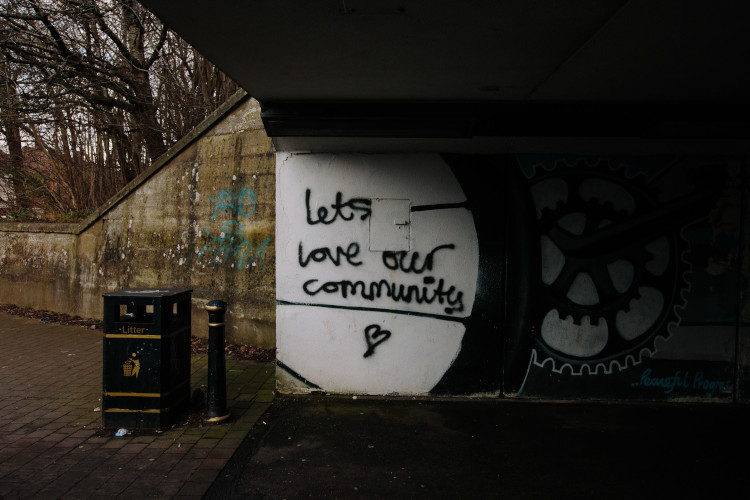Examples of Community Engagement
Published: November 23, 2021
Updated: November 23, 2021
By Rick Lamb in Community

What is community engagement?
Community engagement is consistent participation in activities with a group of people. Supporting or facilitating those activities with your time and possibly money, but probably not just money. A company may have a budget and sponsor a communty event, but that is not really what people mean by engagement generally. As an example, paying an artist to produce a community mural could be considered engagement but only if you back it up through talking to the community about the project beforehand and ongoing project management to ensure the quality and vision is acheived.
What are some actual examples of community engagement activities?
The three most common areas are to feed, educate and entertain. Along those lines here are some specific examples:
- Volunteering your time at a local school or college, maybe you can teach a robotics or coding class at an elementary school where teachers lack the skills
- Creating a community mural, if you don’t have the skills yourself then you could also commision an artist to design it
- Putting on a music festival
- Participating in a neiborhood cleanup initiative
- Entertaining people at a seniors center
- Providing a community meal, like a pancake breakfast
Community Building
Beyond engaging with a community in an existing forum you may also wish to bring together a new group entirely. Intentionally bringing people together and forming a new social group can be very rewarding for all involved, but it shouldn’t be attempted without due care and consideration. Trying to create a new community group can be very challenging, recruiting new members in the begining is a full-time job. You really need to be clear of the benefits people will get from their investment of time. In the age of social media people engage with many more groups, but in a much more shallow way. In partcular starting a group solely online is almost destined to fail. It’s much easier to start a monthly in-person meetup that provides some regular value to members of the group. Often providing opportunities for entertainment, education and/or socialisation, for instance a monthly meetup with invited speakers about a related topic. This gives a strong foundation to build other engagement on, adding an online comment or discussion component for people who already know each other is easier. Conversely groups with more niche interests may benefit from the wider pool of people available on the internet, but most such groups actually fail to maintain traction and take significantly more time and effort than people expect.
Fundraising
Often community engagement can be coupled with some sort of fundraising component. A sponsored swim to raise funds to fix a roof for example. The key is to ensure actual involvement of the community, not just posting online for donations and handing over a check. A whole community engagement strategy will often involve annual fundraising both to finance the community operations and to actually cement engagement of the community itself. A good example of this might be an annual gala where prior members that no longer really need the benefits the community provides can still maintain regular contact and provide help to the community they benefited from previously.
Community Organizing
The final type of community engagement is bringing people together to solve a specific issue. Maybe a community has an elevated level of crime and a group will be formed to lobby government for street lighting or more law enforcement. Difficulties here lie with devolving into partisan politics, moderators and strict rules of discourse quickly become necessary. On the other hand this kind of engagement can have the greatest benefit and often engenders strong ties that may last far beyond when the initial issue is solved.